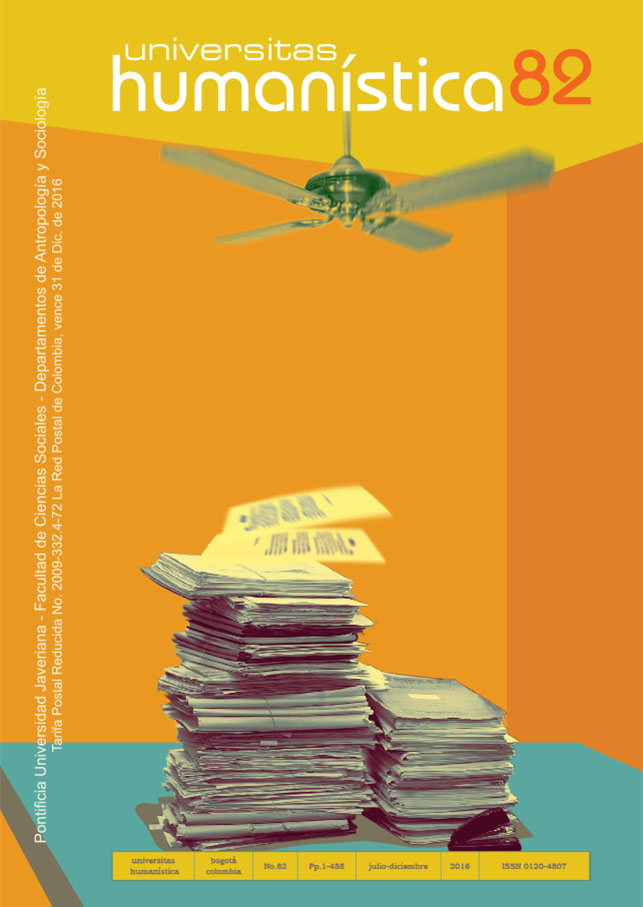Resumen
Este trabajo aborda los procedimientos expertos y administrativos implicados en el Registro Único de Víctimas (RUV) a través del rastreo etnográfico de las prácticas alrededor del Formato Único de Declaración (FUD) que materializan el Reconocimiento de Víctimas del conflicto armado en Colombia. En este sentido, el RUV y el FUD se problematizan como tecnologías sociales que reconfiguran al Estado colombiano y se describen algunas de sus trayectorias y los escenarios de participación que tales objetos condicionan. Esta investigación discute la forma en que el Reconocimiento de Víctimas transforma las experiencias de quienes son reconocidos y quienes reconocen, explorando también una aproximación a la conformación del estado precisamente desde las prácticas que ensamblan una noción particular de Víctima que se intersecta con distintos proyectos estatales.

La revista Universitas Humanística se encuentra registrada bajo la licencia Creative Commons Reconocimiento 4.0 Internacional. Por lo tanto, esta obra se puede reproducir, distribuir y comunicar públicamente en formato digital, siempre que se reconozca el nombre de los autores y a la Pontificia Universidad Javeriana. Se permite citar, adaptar, transformar, autoarchivar, republicar y crear a partir del material, para cualquier finalidad (incluso comercial), siempre que se reconozca adecuadamente la autoría, se proporcione un enlace a la obra original y se indique si se han realizado cambios. La Pontificia Universidad Javeriana no retiene los derechos sobre las obras publicadas y los contenidos son responsabilidad exclusiva de los autores, quienes conservan sus derechos morales, intelectuales, de privacidad y publicidad.
El aval sobre la intervención de la obra (revisión, corrección de estilo, traducción, diagramación) y su posterior divulgación se otorga mediante una licencia de uso y no a través de una cesión de derechos, lo que representa que la revista y la Pontificia Universidad Javeriana se eximen de cualquier responsabilidad que se pueda derivar de una mala práctica ética por parte de los autores. En consecuencia de la protección brindada por la licencia de uso, la revista no se encuentra en la obligación de publicar retractaciones o modificar la información ya publicada, a no ser que la errata surja del proceso de gestión editorial. La publicación de contenidos en esta revista no representa regalías para los contribuyentes.


